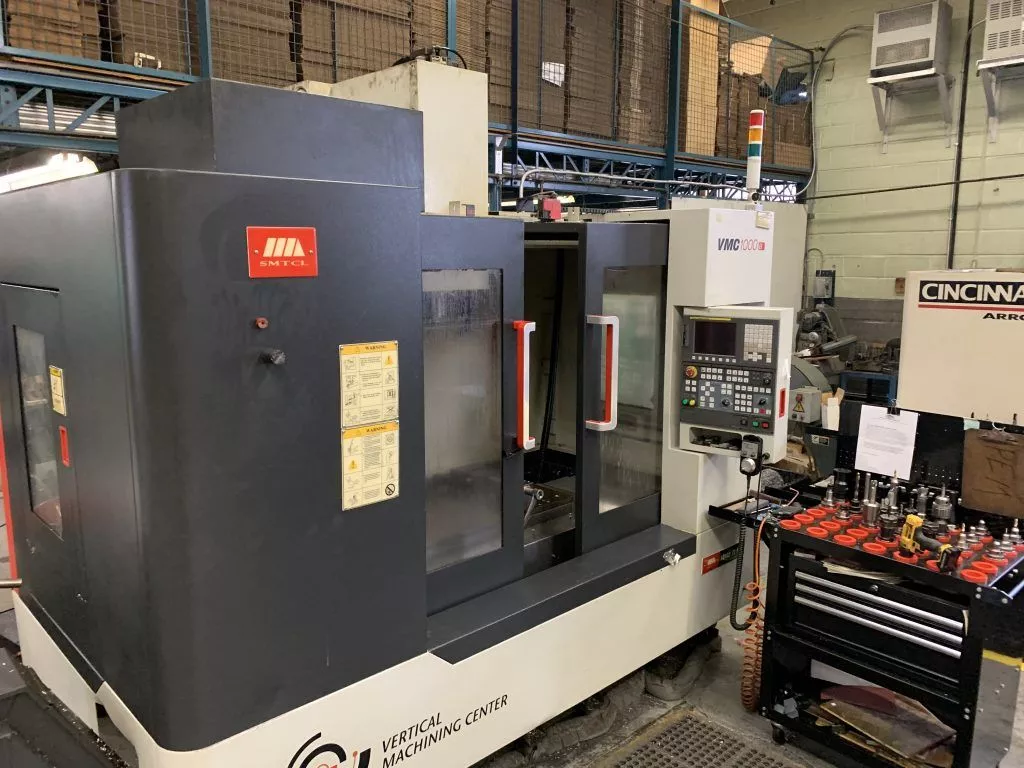A Comprehensive Guide to CNC Machining: From Essential Tools to Quality Control
As technology propels us into the future, one tool stands out in the manufacturing industry for its precision and versatility: Computer Numerical Control (CNC) machining. CNC machining is used to manipulate machining tools like mills and lathes using computer inputs. This technology allows for highly detailed and precise work, transforming industries from automotive to aerospace. Let’s explore the essential tools that power precision in CNC shops.
Essential Tools for Precision in CNC Shops
To reach the high levels of precision and efficiency characteristic of CNC machining, a variety of specialized tools are employed. These tools, each with their unique function, work together to create products with an accuracy often less than 0.001 of an inch. Let’s explore these crucial tools and their roles in more detail.
- Surface Plates: A flat surface for vertical measurements, typically made from granite due to its minimal expansion with temperature changes and smooth surface.
- Go/No-Go Gauge: A tool to ensure parts meet specific tolerances. It contains a “go” and “no-go” component to measure different aspects of the tolerance range.
- Calipers: Tools that vary in sophistication and size, but all function to measure distances by positioning opposing tips at the beginning and end of the measurement.
- Micrometer: A tool that uses a calibrated screw attached to a scale for incredibly precise measurements. It operates similarly to calipers but comes in a variety of shapes.
The Pros and Cons of CNC Machining
CNC machining is an excellent way to take your company to new heights. Below are the pros and cons of custom CNC machining.
Advantages of a Custom CNC Machining Service
- Continuous Operation: CNC machines can run 24/7 with downtime only necessary for maintenance, leading to high productivity.
- Reduced Labour Costs: The automation offered by CNC machines reduces the need for skilled staff, lowering labour costs.
- Consistency and Quality: CNC machining allows for the production of identical parts without defects, enhancing product quality and reducing wastage.
- Software Optimization: The software used in CNC machining can be continually updated, improving the overall process and improving capabilities.
Are There Any Cons?
- Initial Setup Costs: The initial costs of setting up CNC machining can be high, although these are often offset by increased productivity and reduced labour costs.
- Potential Job Losses: The automation of CNC machining can lead to reduced labour needs, potentially causing job losses.
Achieving Quality with CNC Machined Parts
Be low are some of the best ways to streamline manufacturing processes using CNC machine services. The most trusted fabricators in Canada follow these important guidelines:
- Machining Project – Before starting any project, a fabricator will assess the customer’s project. This helps them suggest the type of material required, the complexity of the design, tight tolerances, and more.
- CNC Machines – Not only are different CNC machines used for custom metal fabrication in Toronto but also tools. After going over the project, an expert can determine the appropriate choice for both.
- Customer Timeline – It’s not uncommon for customers to have tight deadlines. In those instances, a fabricator can opt for a CNC machine designed with automated controls. This expedites production. Also, for identical parts and components, it ensures higher consistency and accuracy.
- Optimized Software – For more complex projects, an experienced fabricator can use optimized software. As part of custom metal fabrication in Toronto, this gives them greater control of different parameters. This type of software often features error alerts and detailed reporting.
- Material Selection – As part of custom metal fabrication in Toronto, a fabricator will confirm the customer’s selection of material. For this, they rely on experience and knowledge. Ultimately, they go with a material that offers outstanding durability, precision and fits their needs.
- Machine Speed and Feed – To enhance custom manufacturing operations, a fabricator will choose the CNC machine’s speed and feed. These play a significant role in the product’s efficiency.
- CNC Machine Tools – As mentioned, with CNC machining, fabricators can use a broad range of tools. Some examples include those used for cutting, milling, and drilling the material.
- Machining Environment – Even the environment in which fabricators work matters. For custom metal fabrication in Toronto, fabrication companies work in spaces void of dust, electrical fluctuations, and other risks.
Harnessing CNC Machining – Tools, Insights, and Quality Assurance
In conclusion, choosing to use CNC machining is a strategic move that brings numerous advantages. With appropriate tools, carefully chosen materials, and the correct setup, CNC machining emerges as an affordable, swift, and quality-driven response to the demands of today’s manufacturing industry.
